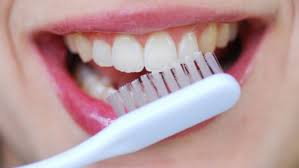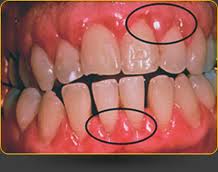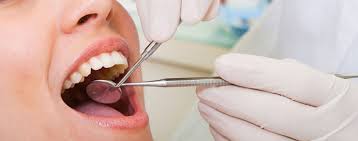Why is oral health care important during pregnancy?
Mothers with gum disease have a higher incidence of preterm birth, a potentially serious pregnancy complication that may cause health concerns of the infant, typically due to low birth weight.
Before pregnancy
When you have decided to start trying for a baby, it is best to book a dental appointment so that any necessary dental work especially x-ray investigations can take place before conception.
During pregnancy
If you’re already pregnant, schedule a routine appointment for the second trimester. Pregnant women are entitled to free dental care and treatment (at the government clinic) from the start of their pregnancy until they deliver.So take full advantage of this because dental treatment does not come cheap these days!
Dental care during pregnancy

Brushing: It is more important than ever to brush and floss your teeth effectively during your pregnancy. Brush regularly and thoroughly (though not too vigorously) after every meals or sugary snacks. Otherwise, brush at least twice a day; morning and night.
Choosing a good toothbrush and dental floss
Invest in a good toothbrush: Using an electrical or battery operated brush with fluoride toothpaste will ensure a thorough clean tooth. If your budget is limited to a manual brush, opt for a soft, but firm bristled brush that will reach all those hard-to-get-to areas at the back of your mouth. It’s also important to floss at least once a day. Opt for dental floss with wax for easy removal of food debris and plaque in between the teeth.
Dealing with morning sickness
If you are suffering from pregnancy or `morning’ sickness: Avoid the temptation to brush immediately after vomiting, the acid from your stomach can cause tooth erosion which will worsen with brushing. Take a cup of plain water instead and return to brushing your teeth after an hour.
Rinsing aid for your mouth
Pregnancy sickness is common and the acid can be very damaging to the surface of your teeth. If you experience pregnancy sickness make sure you rinse your teeth with fluoridated mouthwash. Fluoride will help re-mineralize your tooth surfaces that may have been eroded by the acids from vomiting .Opt for a minty flavour that will refresh rather than adding to the nausea!
Bring along mini brush and toothpaste in your handbag
Pregnancy can induce sugary cravings which you can ward off by cleaning your teeth on the go. Keep a mini brush and tube of paste in your handbag so that you can clean your teeth on the go when the cravings strike.
Diet
As for diet, there are important things to remember. Pregnant women should avoid snacking on soda pop, sweets and starchy snacks because they can cause cavities. Also, bear in mind that baby’s teeth are already forming and this requires an adequate supply of calcium. Calcium is found in milk, cheese, yogurt, dried beans, and leafy green vegetables.
Tooth myths
We’ve all heard that old saying ‘you lose a tooth for every child’! This is not true. Pregnant women are more susceptible to gum disease and problematic teeth as a result of hormonal changes and morning sickness. As long as you care for your teeth properly and eat a well-balanced diet, there’s no reason why you should lose any teeth.
Do you need Fluoride supplements during pregnancy?
No.Taking fluoride supplements during pregnancy will have little impact on your growing baby as they are unlikely to cross the placenta.
Fillings and dental treatment in pregnancy
If you have not visited the dentist for a while, now is the time! Not only will they be able to assess the condition of your teeth, but you may also get some useful oral health tips which you can apply throughout pregnancy. If you need a filling or two, your dentist will be to decide on the best available treatment for you. There is no evidence to suggest mercury fillings are a health risk to pregnant women although many will opt for tooth coloured fillings over amalgam.
Common dental problem during pregnancy

It is not unusual for pregnant women to develop sore, cavities and bleeding gums during pregnancy. This can usually be prevented by good daily brushing and flossing. A visit to the dentist is also important in cases that require treatment. Most dentists prefer not to take x-rays or do complicated treatments in the first trimester. And, because it may be uncomfortable to lie in the dental chair in the last trimester, the second trimester is usually the best time for dental treatment.
Mother’s Oral Health Can Affect Baby
Research shows that the more unfilled cavities a mother have, the more cavity-causing germs she may have. These cavity-causing germs could be passed on to baby once he/she arrives, through daily contact such as sharing food and through letting baby stick her fingers in the mother’s mouth. This is an important reason to have any cavities filled before the baby is born. Since mother shares blood with the unborn baby, any infection of the mouth, such as a cavity or periodontal (gum) disease can affect the baby. There is also growing evidence showing the relationship between periodontal (gum) disease of the mother and potential risk of low birth weight, preterm birth.
Important checklists for pregnant mothers

- Get a dental check up
- Brush at least twice a day with fluoride toothpaste
- Floss daily
- Limit sweet and starchy snacks
- Seek pre-natal care
- Get adequate calcium
| Last Reviewed | : | 23 August 2019 |
| Writer | : | Dr. Lydia Mason a/k Lionel |
| Accreditor / Reviewer | : | Dr. Sharol Lail bin Sujak |







